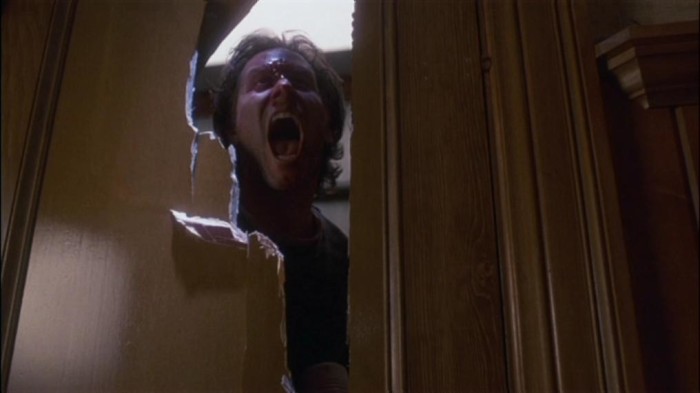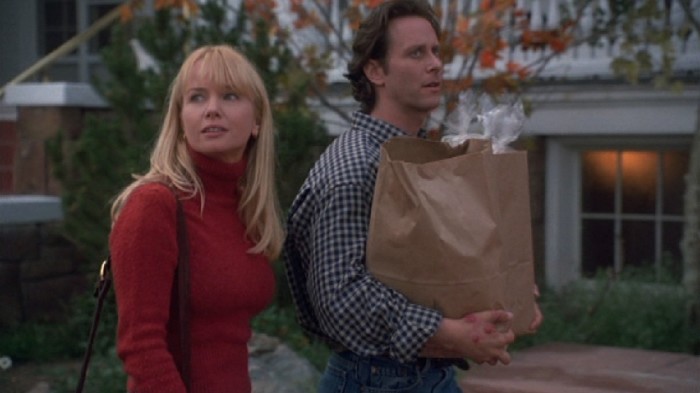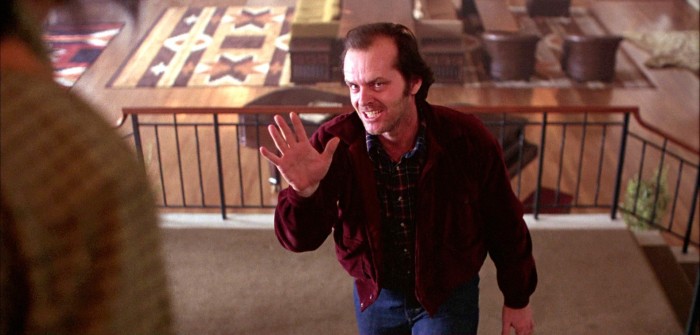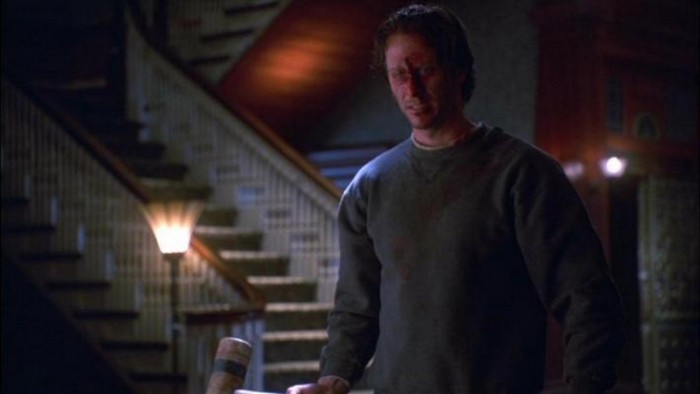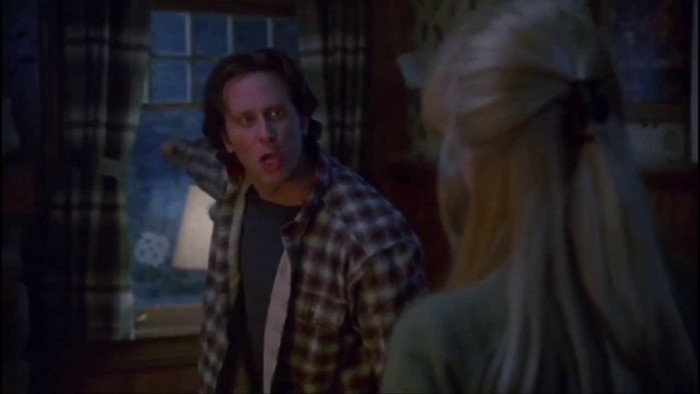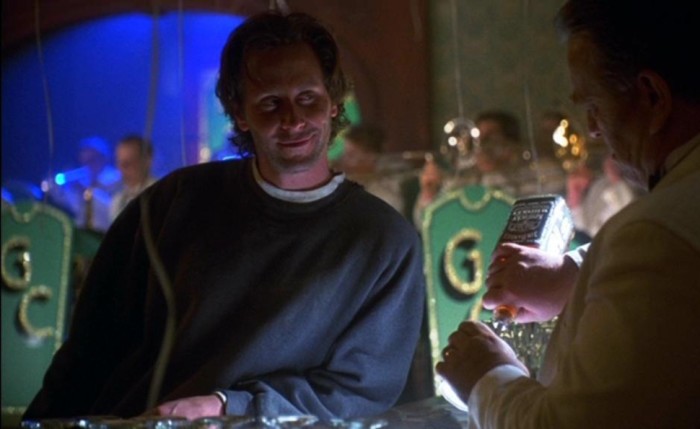The Unpopular Opinion: 'The Shining' TV Miniseries Is A Worthy Companion Piece To Kubrick's Film
(Welcome to The Unpopular Opinion, a series where a writer goes to the defense of a much-maligned film or sets their sights on a movie seemingly beloved by all. In this edition: an argument that the 1997 television adaptation of The Shining is a worthy companion to the iconic Stanley Kubrick film.)
Stanley Kubrick's 1980 film adaptation of The Shining ranks right up there with The Exorcist as one of the greatest horror films of all time. One person who has always been less than enamored with Kubrick's film, however, is author Stephen King.
The Shining was King's third published novel, released while he was on a hot streak in the 1970s, writing some of his most popular page-turners, like Salem's Lot and The Stand. Over the years, King has been vocal in the press about his dissatisfaction with Kubrick's adaptation. But in 1997, around the time of the book's 20th anniversary, he was finally able to "correct" the problem, as Delbert Grady would say, penning and producing a much more faithful mini-series adaptation for television.
We are now about as far removed from the original airing of that mini-series as the mini-series itself was from the novel's publication. Indeed, this year marks the 40th anniversary of the tale of the Torrances and the Overlook Hotel. And with two more high-profile King adaptations on the immediate horizon (namely, The Dark Tower and It), perhaps the time is right for a reevaluation of Stephen King's The Shining, the 1997 TV mini-series.
Cinematic Television
While Stephen King's The Shining has its flaws, it is also imbued with a touch of TV greatness. At the time of its release, TV Guide gave it a 10 out of 10. Ken Tucker of Entertainment Weekly called it "the most frightening TV movie ever made." It was nominated for a Primetime Emmy Award in the Outstanding Limited Series category.
From a technical standpoint, this four-and-half-hour TV movie (sans commercials) cannot hope to compare to the 1980 version of The Shining, of course. The director, Mick Garris, a journeyman known almost exclusively for his TV adaptations of King stories — most notably, The Stand — is certainly no Stanley Kubrick. And while Garris is outclassed and the movie still has a televisual look in places, the lighting and other aspects of the production design do give it a sheen like something you would see on HBO nowadays.
In terms of well-framed shots, this adaptation is not without its moments: the way the camera pulls back, for instance, to reveal two men walking forward in front of the Stanley Hotel, the real-life place that served as the inspiration for the Overlook in King's novel, is an inspired scene. When we meet the woman in Room 217 (King went back to his original number for this version, as opposed to Kubrick's Room 237), the sequence is expertly staged.
Stephen King's The Shining also won an Emmy for Outstanding Makeup, and it is easy to see why once you get a look at Cynthia Garris (the director's wife) in her makeup as "the 217 lady." Give the woman credit: the reveal of her rotting face in close-up remains one of the more terrifying things to have been shown on network television in the past 20 years. One glimpse of her and Kubrick's cackling green grandmother corpse is quickly forgotten.
An underrated score by composer Nicholas Pike helps give certain moments of the movie an appropriately haunting effect. In the context of horror, choral music is always spooky. Like Interview with the Vampire, the main titles here conjure a gothic feel.
That is not to say Stephen King's The Shining is without its cheesy moments. The decision to give visual representation to Danny Torrance's imaginary friend, Tony, as a levitating khaki ghost, seems sorely misjudged. Dialogue is occasionally stilted, and despite its superb make-up effects, the movie uses some dodgy CGI to bring to life its monstrous fire hose and topiary animals. But like the dragon-riding on Game of Thrones, this can perhaps be forgiven as one of the limitations of a TV budget.
In 2017, we are at the point where TV adaptations of famous film properties have become de rigueur, with other horror movies, like From Dusk Till Dawn and even King's own The Mist getting the series treatment. This was a fairly new notion in 1997, however. In that way, Stephen King's The Shining was ahead of its time. It predicted the trend of using television as a medium for long-form retellings of familiar stories.
In doing so, it gave the story more leeway for character development. And that is where the meat of this defense lies: in the issue of characterization.
Wendy and Danny Torrance
There is no getting around it. Courtland Mead, the little boy who plays Danny in The Shining mini-series, can be annoying at times. But in some ways, his spunky child-acting can be seen as a counter-measure to the catatonia of Danny Lloyd, the original boy who played Danny in Kubrick's film.
Lest we forget, Shelley Duvall was nominated for a Razzie Award back in 1980 for her portrayal of Wendy Torrance. For a lot of people, it's probably a trade-off between her and Courtland Mead. Which of them is really less bearable?
For King, the answer has always been Shelley Duvall. This is something /Film reported on back in 2013, when King made the following comment in a BBC interview:
"Shelley Duvall as Wendy is really one of the most misogynistic characters ever put on film. She's basically just there to scream and be stupid, and that's not the woman that I wrote about."
In other interviews, King has dismissed Duvall as "a screaming dishrag." In the mini-series, Rebecca De Mornay rectifies this with her embodiment of Wendy Torrance as a normal, level-headed woman.
This version might not pass the Bechdel test (it is a little hard to do that when you are isolated at the Overlook), but this take on the character is at once more likable and relatable, not to mention self-assured, than the poor blubbering mess that Duvall's character was.
It has been well-documented how Kubrick waged a war of attrition on Duvall's psyche, breaking her down, bullying her, even to the point of subjecting her to a record number of takes (127) for a movie scene with dialogue. For Kubrick, staging such psychological warfare during filming was no doubt a means to an end—the equivalent of William Friedkin slapping an actor. As Blumhouse.com recently pointed out, Kubrick's whole idea was that Wendy Torrance needed to be "mousy and vulnerable." He once said:
"I think Shelley Duvall, in addition to being a wonderful actress, perfectly embodied the kind of woman who remains married to a man like Jack Torrance, even though she knows he has brutally assaulted their son. You certainly couldn't have Jane Fonda play the part."
Rather than misogyny, comments like these betray more of a misanthropy on Kubrick's part. That same misanthropy played into his handling of the story's main character, as well.
Nicholson as Jack Torrance
One of the many memorable moments from Kubrick's version of The Shining is the scene at the beginning where Jack Torrance, played by Jack Nicholson, starts grinning devilishly while talking to his wife and son about cannibalism and the Donner party. It happens while they are in the car, on their way up a winding mountain road to the hotel, where they will remain snowed in alone all winter, while Jack serves as caretaker.
Jack is the one driving, and the way his eyes light up, the way he arches those wolfish eyebrows of his, you just know bad things are in store for this family. The thing about Nicholson as Torrance is that he always has a fiendish air about him. If anything, the hotel just made him become all the more gleefully unhinged.
The scene where his behavior comes closest to that of a loving father is probably the one where he takes Danny up on his lap and asks him, "How's it going, Doc?" Yet even that scene is laced with knowing malice. And it comes mere minutes after we have witnessed him become openly hostile to his wife, cussing her out for breaking his writing concentration.
The performance Nicholson gives is that of a man brimming with spite, right from the get-go. In many ways, he just comes off as a jerk, so much so that if you remove the only overt supernatural happening (specifically, the opening of the locked pantry), one reading of the film would just be to see it as a character study on the banality of human evil. In this reading, Jack is just a case of cabin fever. Beyond that, there is not much dimension to him as a character.
As the film progresses, Nicholson almost over-compensates for this by becoming a living caricature. The actor seems to relish each outburst as an opportunity to show how animated his facial features can become.
Even Steven Spielberg, who counts The Shining among his favorite films, conceded that he initially found Nicholson's performance to be over-the-top. He likened it to an exaggerated kabuki performance, whereas Kubrick likened it to a scene-chewing James Cagney performance.
Kubrick articulated his take on the character of Jack Torrance this way:
"Jack comes to the hotel psychologically prepared to do its murderous bidding. He doesn't have much further to go from his anger and frustration to become completely uncontrollable. He is bitter about his failure as a writer. He is married to a woman with whom he has only contempt. He hates his son."
This is clearly a different reading on the character than the one King had. Granted, it made for an unforgettable screen villain, one the American Film Institute ranked as the 25th greatest of all time. But Nicholson's Joker made the same list, and if there is room for other interpretations of that character, then there is no reason why the big-screen and small-screen Jack Torrance cannot exist side-by-side, as well.
Weber as Jack Torrance
What Steven Weber manages to pull off with The Shining TV miniseries is nothing short of a miracle. At the time, Weber was an actor known primarily for his comedic work on the '90s sitcom Wings. To have the goofball who played Brian Hackett fill the almighty shoes of Jack Nicholson at first seemed like a ridiculous prospect. The way Weber got around this was simply by sidestepping those shoes, not even attempting to fill them. His Jack Torrance is, accordingly, a completely different character than Nicholson's was.
In a 1983 Playboy interview, Stephen King said The Shining was "about Jack Torrance's gradual descent into madness through the malign influence of the Overlook."
"If the guy is nuts to begin with," he said, "then the entire tragedy of his downfall is wasted."
In Weber, we see the full, frightening transformation of Jack Torrance brought vividly to life. His version of the character starts out weary and at times irritable, in keeping with his background as a recovering alcoholic. But we also see glimpses of him having playful interactions with his wife and son.
As a man capable of genuine affection, Weber is much more convincing. Gradually, however, his Torrance slowly succumbs, not so much to cabin fever, but to an obsession with the Overlook. This allows the hotel's dark supernatural forces to effectively possess him.
At one point, his wife even notes that all the old habits are back from when he was an alcoholic. Except that now he is a slave to obsession. When bottles of alcohol do magically materialize, courtesy of "The Management," his relapse into drinking comes about more as a byproduct of that obsession. Whiskey is just another means for the Overlook to control him.
The initial scenes of domestic violence against his wife are harrowing. By the time he starts chasing his son through the hotel (with a croquet mallet in this telling, as opposed to an ax), his face has morphed into a ghoulish mask, his forehead split open, blood in his teeth. This nightmare image is made all the more horrifying because we know there used to be a loving husband and father under there.
Originally, King had envisioned an actor like Jon Voight or Martin Sheen, someone with more of an "everyman" quality, playing the part of Jack Torrance. Weber has that everyman quality, yet there is also a vaguely reptilian quality lurking in the contours of his face. This has only grown more pronounced as the actor has gotten older. When he guest-starred as a shifty character on How to Get Away with Murder, there was something deeply unsettling about the way his lizard-like eyes gazed out from two browless sockets. Residue from the Overlook?
Even just his voice can be scary. If hearing Steven Weber yell things like, "Damn nosy little pup. You get down here and take your medicine!" is not enough, check out the unabridged audiobook version of It. Weber is the narrator, and his voice is perfectly suited to the role of Pennywise the Clown. If nothing else, the audiobook might make a good primer for the upcoming It feature film in September.
King and Kubrick
In The Shining mythos, there already exists a duality of names: two Jacks (Jack Torrance and Jack Nicholson), two Stanleys (Stanley Kubrick and the Stanley Hotel), and two Steves (Stephen King and Steven Weber). Perhaps there is, likewise, room for two equally valid adaptations of the story, without having to set up some false dichotomy where one is good and the other is bad.
Both interpretations of Jack Torrance remain perfectly legitimate. In a sense, they complement each other, like twins in a hallway, or reverse mirror images (Redrum!).
Kubrick's film is timeless, the work of a full-fledged auteur, who has inspired both academic and conspiracy theory — as the fascinating documentary Room 237 attests. Meanwhile, with King serving as executive producer and penning the teleplay, he could probably be considered the true guiding hand behind the miniseries. Hence the inclusion of his name in the title.
In the end, these two adaptations are simply informed by different artistic viewpoints; and the version you prefer may depend largely on whose viewpoint you identify with more. It all comes down to the philosophical divide between King and Kubrick.
King likes to tell the story about how Kubrick once made a transatlantic phone call to him from England, just to ask, "Do you believe in God?" When King said yes, Kubrick replied, "No, I don't think there is a God," and hung up.
In a 2014 interview on NPR's Fresh Air, King further related how Kubrick once said to him, "Stephen, don't you feel that anybody who tells a ghost story is basically an optimist because that presupposes the idea ... that we go on into another life?"
It may seem strange to think of an author like King, the master of the macabre, as an optimist. But much like Ray Bradbury, there is very much a streak of optimism, even sentimentalism, to King's writing. His novella The Mist, for example, literally ends on the word "hope." Contrast this with the bleak ending of Frank Darabont's 2007 film adaptation, and it immediately becomes clear that King's horror-writer ruthlessness only extends so far.
For King, ghosts are real, capable of exerting influence on human beings, if not outright claiming their bodies as vessels, a la the Black Lodge spirits of Twin Peaks. Like Leland Palmer, Jack Torrance receives absolution in the end, and so his spirit can be there for the schmaltzy ending at his son's high school graduation.
It is interesting to note how Kubrick's film ends with Jack Torrance lying dead in the snow, whereas Stephen King's The Shining climaxes with Jack Torrance allowing the hotel's boiler to overheat and explode. As King himself put it, "The book is hot, and the movie is cold. The book ends in fire, and the movie in ice."
If Kubrick lives on in his work as a man who "thinks too much and feels too little" (as King maintains), then perhaps author Mark Browning is right in characterizing King as a man who "feels too much and thinks too little."
They are two sides of the same coin. And so ultimately, the whole King vs. Kubrick debate is unnecessary. At the end of the day, The Shining is like one of those great songs that has produced a well-known cover version, and even a later re-recording by the original artist (not to mention a sequel, King's 50th novel, Doctor Sleep).
Appreciating King's vision does not mean you have to abandon your love for Kubrick's vision. A fan should be able to enjoy both tellings of the story.
Perhaps the flawed gem that is Stephen King's The Shining could never hope to match the greatness of Kubrick's film. Yet it still stands as a worthy companion piece, one that has been unfairly dismissed and deserves a reappraisal.

